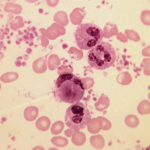The Rheumatology Research Foundation has embarked on its third and most ambitious fundraising campaign, with a goal of raising $75 million. The Leading Boldly: Transforming Rheumatology campaign will support Foundation programs to recruit the best and brightest into the field, train rheumatology health professionals at all career stages and support investigators conducting research that will…









